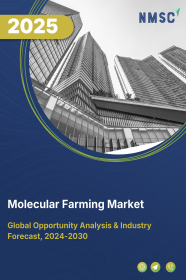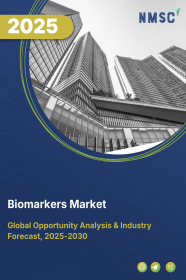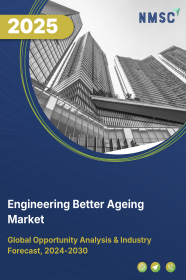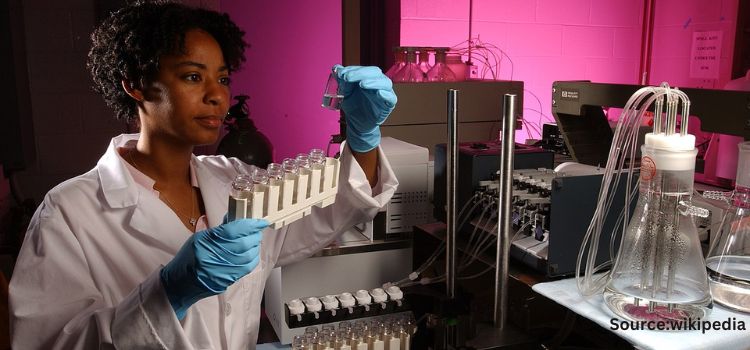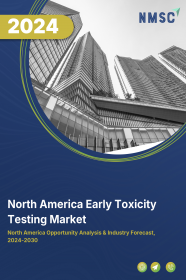
North America Early Toxicity Testing Market by Technique (In Vivo, In Vitro and In Silico), by Toxicity Endpoint (Genotoxicity, Dermal Toxicity, Skin Toxicity, Ocular Toxicity, Phototoxicity, and Others), and by End-User (Pharmaceutical Industry, Cosmetic Industry, Chemical Industry, Food Industry, and Others) – Opportunity Analysis and Industry Forecast, 2025–2030
Industry: Healthcare | Publish Date: 26-May-2025 | No of Pages: 165 | No. of Tables: 122 | No. of Figures: 67 | Format: PDF | Report Code : HC727
US Tariff Impact on North America Early Toxicity Testing Market
Trump Tariffs Are Reshaping Global Business
Industry Overview
The North America Early Toxicity Testing Market size was valued at USD 2.87 billion in 2024, and is predicted to reach USD 4.29 billion by 2030, at a CAGR of 6.9% from 2025 to 2030. The market is growing due to the expansion of the chemical sector and the increasing prevalence of chronic diseases. These factors are raising the demand for early-stage testing to ensure the safety and efficacy of drugs and chemicals.
However, strict regulatory requirements imposed by government agencies hinder market adoption, especially among small and medium-sized companies. Despite this, the introduction of innovative technologies such as 3D cell culture offers promising opportunities to improve testing reliability and accelerate drug development. Leading companies, including Merck KGaA, Laboratory Corporation of America Holdings, Thermo Fisher Scientific, PerkinElmer, and Bio-Rad Laboratories, are focusing on product development, strategic partnerships, and regional expansion to strengthen their market position. These initiatives support faster identification of safety concerns, ensure compliance with evolving standards, and contribute to the market’s long-term growth trajectory.
Expansion of the Chemical Sector Fuels the North America Early Toxicity Testing Market Growth
The growth of the chemical sector in North America significantly contributes to the demand for early toxicity testing services. Chemicals developed for industrial, consumer, or pharmaceutical applications must undergo rigorous toxicity evaluations before approval. According to the American Chemistry Council (ACC), the U.S. chemical sector was projected to grow by 2.2% in 2022 and is expected to grow by 1.9% in 2025. This rise in chemical production necessitates early-stage safety testing to identify harmful compounds, thereby driving the need for advanced toxicity assessment tools across the region.
Rising Prevalence of Chronic Diseases Drives the North America Early Toxicity Testing Market Demand
An increasing number of individuals in North America suffer from chronic conditions such as diabetes, cardiovascular diseases, and respiratory disorders. These populations depend on continuous treatment, prompting the development of new medications tailored to long-term care. In Canada, diabetes patients are projected to increase by 16.6%, from 2.97 million in 2021 to 3.47 million by 2045, according to the International Diabetes Federation. This rising demand for safer medications supports the adoption of predictive toxicology methods, which help ensure drug safety and improve patient outcomes.
Strict Regulations Hinder the North America Early Toxicity Testing Market Expansion
The presence of stringent regulatory frameworks enforced by agencies such as the U.S. Food and Drug Administration (FDA) acts as a restraint to market growth. Comprehensive requirements for preclinical and clinical evaluations often lead to extended approval timelines and increased costs, particularly affecting small and mid-sized enterprises with limited resources. This regulatory burden reduces the pace of drug innovation and diminishes the adoption rate of early toxicity testing, ultimately limiting the overall early toxicity testing market expansion.
Introduction of Innovative Technologies Creates Market Opportunity
Technological advancements such as 3D cell culture are expected to transform the drug safety assessment landscape. Unlike traditional 2D models, 3D cell cultures replicate the structure and behavior of human tissues more accurately, improving the reliability of toxicity assessments. These technologies enhance predictions of adverse effects, reduce dependence on animal testing, and support regulatory compliance. As a result, they offer a promising opportunity for stakeholders seeking efficient, ethical, and cost-effective testing solutions.
United States Dominates the North America Market
The United States dominates the North America early toxicity testing market share, driven by robust healthcare investment and strong R&D initiatives. According to the OECD, U.S. health spending grew by 3% in 2022, reaching USD 12,555 per capita. This financial support enables pharmaceutical firms to adopt advanced testing tools that improve safety evaluations and accelerate the development process. Furthermore, U.S. R&D spending saw a 12.2% increase, rising from USD 789.1 billion in 2021 to USD 885.6 billion in 2022, as reported by the National Center for Science and Engineering Statistics. This focus on innovation fuels improvements in testing methodologies, supporting sustained market growth.
Mexico to Witness Substantial Growth in the Region
Mexico is projected to experience significant growth in the North America early toxicity testing market trends, fueled by rising cancer cases and the expansion of the food and beverage industry. According to Globocan, the number of cancer cases in Mexico is expected to rise by 89.9%, from 207,000 in 2022 to 393,000 by 2050. This increase intensifies the demand for effective toxicity screening in cancer drug development. Additionally, the country’s growing food and beverage production sector emphasizes safety compliance and quality control. The need to detect toxic residues and contaminants supports the adoption of early toxicity testing to meet regulatory requirements and protect consumer health.
Competitive Landscape
The promising players operating in the North America early toxicity testing industry includes Merck KGaA, Laboratory Corporation of America Holdings, Thermo Fisher Scientific, PerkinElmer, Inc., Bio-Rad Laboratories, Inc., Charles River Laboratories International, Inc., Eurofins Scientific, Agilent Technologies, Inc., Danaher Corporation, Medpace, SGS SA, Altasciences, Boehringer Ingelheim, Bruker Corporation, Navitas Life Sciences, and others.
North America Early Toxicity Testing Market Key Segments
By Technique
-
In Vivo
-
In Vitro
-
Cell Culture
-
PCR
-
ELISA
-
Western Blotting
-
Protein Binding Assays
-
-
In Silico
By Toxicity Endpoint
-
Genotoxicity
-
Dermal Toxicity
-
Skin Toxicity
-
Ocular Toxicity
-
Phototoxicity
-
Others
By End-User
-
Pharmaceutical Industry
-
Cosmetic Industry
-
Chemical Industry
-
Food Industry
-
Others
By Country
-
U.S.
-
Canada
-
Mexico
Key Players
-
Merck KGaA
-
Laboratory Corporation of America Holdings
-
Thermo Fisher Scientific
-
PerkinElmer, Inc.
-
Bio-Rad Laboratories, Inc.
-
Charles River Laboratories International, Inc.
-
Eurofins Scientific
-
Agilent Technologies, Inc.
-
Danaher Corporation
-
Medpace
-
SGS SA
-
Altasciences
-
Boehringer Ingelheim
-
Bruker Corporation
-
Navitas Life Sciences
REPORT SCOPE AND SEGMENTATION:
|
Parameters |
Details |
|
Market Size Value in 2024 |
USD 2.87 billion |
|
Revenue Forecast in 2030 |
USD 4.29 billion |
|
Value Growth Rate |
CAGR of 6.9% from 2025 to 2030 |
|
Analysis Period |
2024–2030 |
|
Base Year Considered |
2024 |
|
Forecast Period |
2025–2030 |
|
Market Size Estimation |
Billion (USD) |
|
Growth Factors |
|
|
Companies Profiled |
15 |
|
Countries Covered |
3 |
|
Customization Scope |
Free customization (equivalent up to 80 working hours of analysts) after purchase. Addition or alteration to country, regional, and segment scope. |
|
Pricing and Purchase Options |
Avail customized purchase options to meet your exact research needs. |

















 Speak to Our Analyst
Speak to Our Analyst



